TKF opens fiber optic cable plant in Poland
B.V. Twentsche Kabelfabriek (TKF), part of TKH Group N.V., officially opened its new production facility for fiber optic cables on Sept. 6 in Rawicz, Poland, an initiative described as an important company milestone.
A press release said that, with the new facility, TKF has doubled its fiber optic cable production capacity in Europe, which allows it to partially replace production capacity in China. The Rawicz location will bolster TKH’s ability “to supply Europe with innovative fibre optic cable solutions.”
The new plant, at full capacity, will have more than 75 full-time jobs at the site. It has some 10,000 sq m of space dedicated to fiber optic cable production. Construction began last March, “and now, just one and a half years later, the factory is already operational.”
The new facility is in line with TKF’s commitment towards a sustainable future. It was designed to meet ESG goals that include, among others, the use of a state-of-the-art UV LED, LED lighting and solar power.
“There is a great sense of pride among the workers here and the community,” said TKF Telecom Director Wim Bank. “Our expansion is an exciting move for TKF. By significantly increasing capacity in the European Union, we enhance our ability to meet the needs of our customers and strengthen our European competitiveness.”
The new cable factory is at the same location as E&E Cable Solutions. Both are part of the TKH Group. TKF, founded in 1930, has developed from a cable manufacturer to a technologically leading supplier of connectivity solutions. In June it announced that it had been awarded a cable supply contract by Ørsted, the global leader in offshore wind power. That project calls for it to supply and terminate close to 200 km of inter-array cables and other cables including accessories and connectors, all operating 66 kV for the 920 MW Greater Changhua 2b and 4 offshore wind farms in Taiwan.
M. Holland Company acquired by Ravago Group
M. Holland Company, a U.S.-based international distributor of thermoplastic resins and ancillary materials for sectors that include wire and cable, has been acquired by the Ravago Group, a Swiss-based business that has more than 45 manufacturing plants in North America, Europe, Asia and Africa.
The financial terms of the deal were not disclosed,
but a press release said the founding Holland family will retain a significant stake. Following the close of the transaction, M. Holland will continue to operate independently as a subsidiary of the Ravago Group family of companies, and its existing management team—including CEO and Board Chairman Ed Holland and President and COO Marc Fern—will continue to lead it.
“This transaction is an important inflection point for M. Holland as it places the company on a clear path to continued and long-term success,” Ed Holland said. “Following an exhaustive review of strategic paths, we determined the best way to serve our stakeholders and set up M. Holland for success over the next 70 years was to partner with an organization that shared our passion for employees, customers and suppliers. Ravago Group is that partner.”
Headquartered in Northbrook, Illinois, M. Holland has over $1.5 billion in annual sales, partners with more than 4,000 customers annually, and serves over 70 countries across North America, LATAM, EMEA and Asia. M. Holland has offices located in the U.S., Mexico, Puerto Rico and the Netherlands.
The Ravago Group, a global plastic production and distribution company, specializes in polymer and chemical distribution, building materials, recycling and raw materials. Its activities include distribution, resale and manufacturing, as well as business services and supply chain solutions. It has operations in more than 325 locations across North America, Asia, Africa and Europe, with its American headquarters located in Orlando, Florida.
“M. Holland is a well-known and respected name in the plastics industry, and we are thrilled to welcome (it)to the Ravago Group family of companies,” said Ravago Holdings America President and CEO Jim Duffy.
The transaction is subject to closing conditions
NKT confirms that it has a capacity reservation from SSEN Transmission for Scottish power cable projects that it was previously given status as a preferred bidder.
A press release said that NKT has now reserved production and offshore installation capacity for SSEN Transmission for power cables for the two HVDC transmission lines that link Western Isles and Spittal-Peterhead. The projects will strengthen the interconnection of the Scottish transmission grid.
The parties have agreements ensuring production and offshore installation capacity for the 525 kV XLPE high-voltage direct current (HVDC) power cable systems for the two Scottish projects. NKT will be responsible for both on- and off-shore cable systems for the two links. The combined value of the two projects has not been set but is estimated to top €1 billion. Both projects are scheduled for completion in 2030.
“The reservation of production and offshore installation capacity is an important milestone in the great collaboration with SSEN Transmission and our continuous support of the green transition in Scotland,” said NKT President and CEO Claes Westerlind. “The projects are an excellent fit with our decision to expand our high-voltage production capacity in Karlskrona and add a new market leading cable-laying vessel to our fleet.”
The Western Isles and Spittal-Peterhead offshore HVDC transmission links are part of The Pathway to 2030 Holistic Network Design (HND) which is a major upgrade of the electricity transmission network across Great Britain that is required to help meet U.K. and Scottish Governments 2030 renewable energy and climate change targets. The Western Isles cable route calls for some 160 km of 525 kV HVDC cable, to be completed by the end of 2024, and the Spittal-Peterhead cable route calls for some 220 km of 525kV HVDC, to be completed by the end of 2025.
Southwire to acquire Genesis Wire & Cable
Southwire Company, LLC, and Resideo Technologies, Inc., announced that they have entered into an agreement that would see Southwire acquiring Genesis Wire & Cable business, a leading low-voltage wire and cable manufacturer based in Pleasant Prairie, Wisconsin.
A press release said that the transaction was expected to close in the next 30 days, subject to customary closing conditions. With 187 employees, Genesis manufactures approximately 70% of its products in-house and purchases the remaining 30% as finished goods ready for distribution from other third-party manufacturers.
“We are excited to welcome the Genesis team to Southwire,” said Southwire’s President and CEO Rich Stinson. “The strong brand and quality reputation Genesis has built over the last three decades is a perfect fit for Southwire and our focus on innovation, service and quality. Their product offering provides an opportunity to share our innovative solutions with even more customers, positioning us for success both now and in the future.”
Genesis’s products provide critical connection for a wide range of residential and commercial applications, including comfort, security, network and communications, entertainment, and fire and safety. It serves a broad set of distributors, dealers and professional contractor customers.
“We’re excited to welcome the Genesis Cable team to Southwire,” said Norman Adkins, COO at Southwire. “The company’s expertise in low-voltage wire and cable production will be instrumental as we continue to expand into new and emerging markets, especially within the Security and HVAC sales channels.”
Orion investing in ‘greener’ black carbon
Orion S.A., a global specialty chemicals producer, is investing €12.8 million to further develop and demonstrate a climate-neutral process for producing carbon black—used in multiple products, included wire and cable—from alternative carbon sources.
A press release said that a research facility is being built for the project at Orion’s main innovation center at its plant in Cologne, Germany. The technology is designed to improve Orion’s yield and throughput in the production of carbon black using circular feedstocks and thus potentially reduce the carbon footprint of the process by a significant amount. This could accelerate the shift to a circular economy and feed the growing demand for sustainable materials in the tire industry.
Half of the €12.8 million Orion plans to invest in this initiative, called the “Clean Carbon Black Research and Development Project,” will be provided by the decarbonization program of Germany’s Federal Ministry of Economic Affairs and Climate Action. It will also be supported by the EU’s NextGenerationEU fund.
“We are grateful for the funding from the EU and the German government,” said Orion CEO Corning Painter. “It shows a great commitment to innovation and creating a circular economy.”
Service Wire plans Arizona expansion
Service Wire announced that it plans to double its footprint in Phoenix, Arizona, where the company has been operating for nearly three decades.
A press release said that the company will significantly expand its warehouse and distribution, in turn increasing their manufacturing capacity. “This project has been in the works for some time,” said Scott Olson, director of sales in Phoenix. “It will position us to provide customers a greater selection of on-hand inventory and even faster delivery. We’ve had tremendous support from our customers and suppliers, who have been encouraging us to expand.”
“During our time in the region, we have seen tremendous growth in the surrounding markets,” said Mark Gatewood, vice president of sales and marketing. “We continually reinvest to keep pace with that growth. With this expansion, we are poised to support customers well into the future. It’s a very exciting time for the company.”
“We are reinvesting in a big way,” said Louis Weisberg, CEO of Service Wire. “This project exemplifies our long-term commitment to our customers and growing workforce out West.”
The Prysmian Group announced that it has agreed to reserve capacity to supply the cable to the Marinus Link Pty Ltd., a subsidiary of the Australian TSO TasNetworks, for a new power interconnector between Tasmania and Victoria, Australia.
A press release said that the contract for the project, valued at approximately €90 million, will be negotiated and is expected to be finalized within 2024. Prysmian Group has reserved the capacity to design, test, supply and install a HVDC Cable System, consisting of 320 kV single-core cables with XLPE insulation and single-wire armoring, covering both submarine and land sections.
The submarine connection will be approximately 255 km long, from Northwest Tasmania to Waratah Bay, Victoria, while the underground cable will run for approximately 90 km reaching the Latrobe Valley, Victoria. The link will include a submarine fiber optic cable of 255 km.
The submarine cable would be made at the Prysmian Group’s plant in Arco Felice, Italy, while the land cables has been reserved at its plant in either Delft, The Netherlands, or Gron, France. The laying would be done by the Prysmian Group’s Leonardo da Vinci.
Under the Marinus Link project, Prysmian Group is expected to also provide a fully integrated PRY-CAM permanent monitoring system. All cables will be constantly monitored using the PRY-CAM innovative solutions like Distributed Temperature (DTS) and Acoustic Sensing (DAS) to measure all key operating parameters of the whole cable system.
“This capacity reservation agreement has a strategic importance for Prysmian as it underlines our global leadership and strengthens our regional presence in Oceania as a major supplier of an extensive range of high-tech products to power utilities,” said Detlev Waimann, Chief Commercial Officer Projects BU, Prysmian Group.
Of note, the project originally called for two power cables. In 2017, the Marinus Link was designed to include two 750-megawatt cables at a total cost of about $3 billion. Fast forward through a period of global inflation, Covid and raw material cost increases and the projected cost was $5.4 billion. The cost for the project with a single cable was estimated at $1.9 to $2 billion. The single cable, it was said, would achieve about two-thirds of the project value.
Southwire has entered into a partnership with NKT to supply underground cables for the Champlain Hudson Power Express Project (CHPE).
A press release said that Southwire will supply a portion of the underground power cables for the CHPE project for NKT, the project’s turnkey cable supplier and cable system technology owner. CHPE will require roughly 546-km fully buried, high-voltage direct current (HVDC) transmission system using a combination of submarine and underground cables. Southwire will manufacture the cables at its Huntersville Plant in North Carolina.
“As I have said many times, it is a great time to be in our industry and an even better time to be at Southwire,” said Rich Stinson, Southwire’s president and CEO. “We are honored and excited to enter a partnership with NKT and support one of the largest renewable projects in the nation.”
“The award to Southwire is an important element for securing sufficient manufacturing capacity for a project of this size and combines our HVDC cable system technology and design with Southwire’s manufacturing expertise,” said Mika Makela, managing director, NKT North America.
The transmission project is designed to deliver 1,250 megawatts of clean, renewable hydropower from the U.S.-Canadian border to Queens, New York, enough power for more than one million New York homes.
Hellenic Cables announced it has been awarded an EPCI contract for the grid interconnection of the Western Offshore Substation of Gennaker Offshore Wind Farm in the Baltic Sea, off Germany.
A press release said that Hellenic Cables, the cables segment of Cenergy Holdings, won the contract—worth approximately €400 million—from 50Hertz Offshore GmbH. It calls for the turnkey delivery of two export cable systems for the interconnection to the German grid of the Western Offshore Sub Station of Gennaker, an offshore wind farm with capacity of approximately 927 MW located in the German Baltic Sea.
Hellenic Cables will design, provide, install and commission the two export cable systems that will connect a new onshore substation. The site is located close to Gnewitz in Northern Germany, to the Western Offshore Sub Station of the wind farm. The order calls for 80 km of 220 kV submarine and 210 km of 220 kV underground cables as well as related accessories. They are expected to be installed and delivered in 2027.
The submarine cables will be manufactured at Hellenic Cables’ manufacturing plant in Corinth, Greece, and the underground cables will be manufactured at the company’s plant in Thiva, Greece.
SubCom announced that it will manufacture and install a regional subsea cable that will branch from the SEA-ME-WE 6 cable system, and will significantly enhance the data exchange capabilities of the Kingdom of Bahrain.
A press release said that Al Khaleej will stretch 1,400 km, connecting Bahrain to regional countries that include Qatar, UAE and Oman. The customer is Batelco, part of the Beyon Group, a telecom solutions provider in the Kingdom of Bahrain. Al Khaleej, to be made at SubCom’s plant in Newington, New Hampshire, will substantially boost the capabilities and strengthen regional connectivity. It will branch from the SEA-MEWE 6 cable, a 21,700 km-long subsea telecom data cable system.
“Our congratulations to Batelco on the launch of the Al Khaleej regional cable system,” said Benoit Duguet, SubCom project manager. “Our organization is already at work manufacturing the cable and equipment necessary to complete one of the more extensive cable projects ever commissioned. We are grateful to the entire SEA-ME-WE 6 consortium for entrusting SubCom with this critical project, and to Batelco in particular, for giving us the opportunity to build a branch that will have such a positive impact on the region’s connectivity”
Batelco joined the SEA-ME-WE 6 consortium in February, which includes Bangladesh Submarine Cable Company Limited (BSCCL), Bharti Airtel Ltd. (India), Dhivehi Raajjeyge Gulhun Public Limited Company (Dhiraagu Maldives), China Unicom (China), Djibouti Telecom, Mobily (Saudi Arabia), Orange (France), Singtel (Singapore), Sri Lanka Telecom, Telecom Egypt, Telekom Malaysia, Telin (Indonesia) and Trans World Associates (Pakistan).
The SEA-ME-WE 6 cable system will have the capability of transferring more than 100 terabits per second. The new subsea cable will create a layer of network diversity and resilience for the heavily used routes connecting the Middle East towards Europe and Asia.
SubCom is a leader in high fiber count cables, The SEA-ME-WE 6 subsea cable connectivity to Bahrain and Al Khaleej Cable are expected to be completed by Q2 2026.





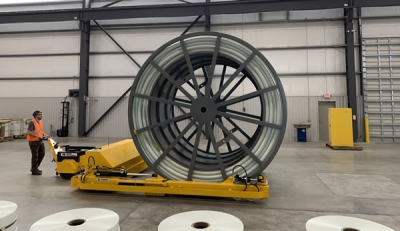
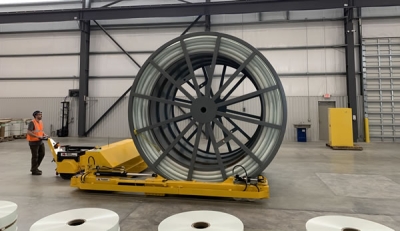
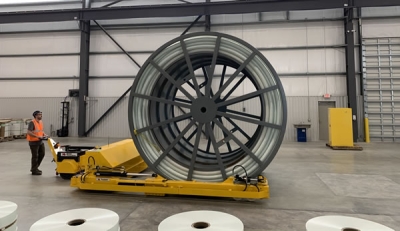
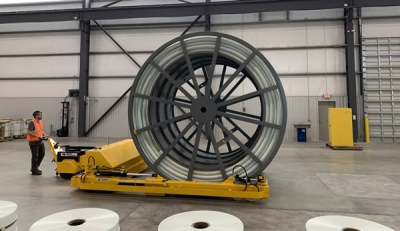
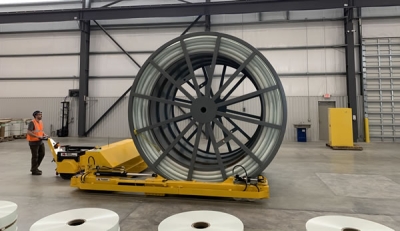
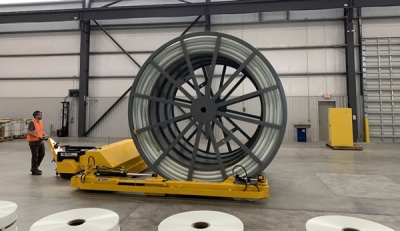
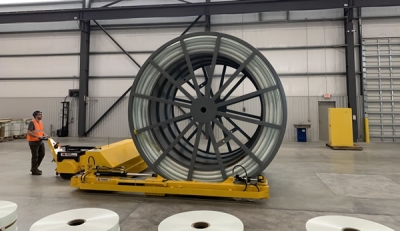
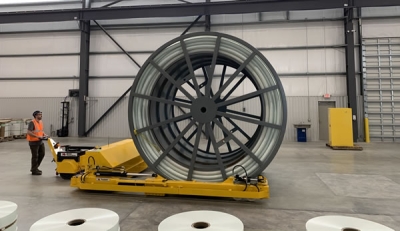
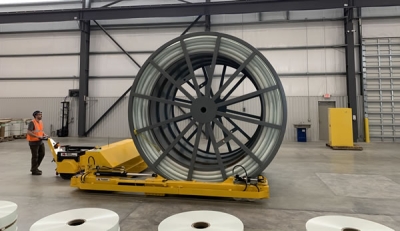
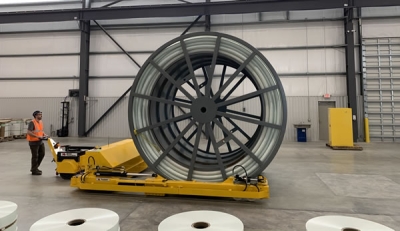
 How to resolve AdBlock issue?
How to resolve AdBlock issue?